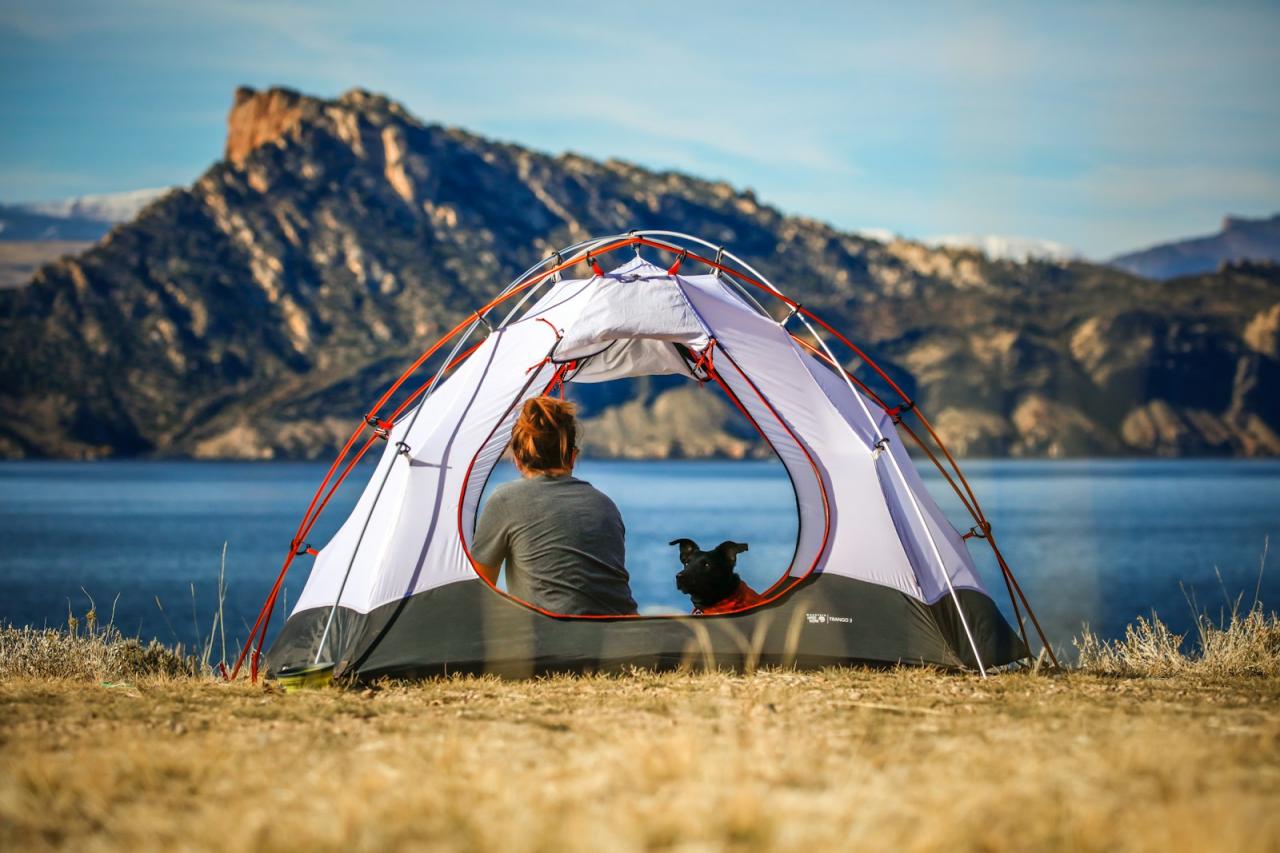
Camping is a popular hobby all around the world, but nowhere as much as in the US, where it is a family classic. It is almost a ritual, a vacation, or at least a weekend spent in a camper, van or a tent. Some happy campers like to take to the wild with their pets – usually dogs and cats. Pets, however, are not the biggest fans of such holidays unless they have been taught to like them from a young age. House pets like their routine and their home too much to want to change it for a foreign environment like a campsite, but some will still ‘follow’ their owners regardless. There are rules that can be taught at any age, to make the experience a fun one for your critters, rather than an unnecessary removal of comfort.
It is very important to keep a dog on a leash or a collar. This protects the dog as much as it protects the intactness of the campsite. It is also a favor to the other people in the vicinity – remember that not everybody can keep calm and collected around a dog, and there’s no reason to cause chaos on shared grounds. Cat leashes are also available, but in this case it is more to protect the cat than its surroundings. A cat will stray from its owners, and it is questionable how easy it will be for it to find its way back afterwards.
Pets should be trained and obedient, socialized for this sort of holiday. An unsocialized dog can be maintained at home, or in the backyard, but not in a large outdoors environment with plenty of potential threats and strangers. It’s a stressful situation no responsible pet owner would want to inflict upon their pet.
Both cats and dogs need to be properly fed, and they should be prevented from hunting on their own. House pets are hardly predators in the wilderness, though they may not be aware of their own defenselessness until it is too late. So a bowl of food, a bowl of water, and designated meal times can protect your animal from wandering off.
Even house pets need to be active. Long walks are a beloved pastime for all dogs, except the elderly ones (be easy on them), and spending a weekend outdoors means the dog is in for some very rewarding, very long walks in an exciting new environment. City rules work here as well – always have a leash on you. There is less of a chance that your pet will attack someone in the woods, but if it hears something exciting and runs off – that spells trouble for all participants. Keep your pets in sight at all times. A good practice is to stick to existing tracks; that way you can protect the birds and small animals nesting in other more remote spots. Also, clean up after your pets at all times, especially in the designated campsite.
The situation is somewhat different if the pet is a cat. Cats are not too big on leashes, but this is a necessity. Like with dogs, cleaning after your cat is an absolute must. Cats are more ferocious predators than dogs, so mind that your critter doesn’t get into hunting too much, or you’ll be spotting dead bird and rodent trophies all around the tent.
Last but not least, regardless of the breed of your pet, health comes first. People are prone to a whole variety of injuries and diseases when camping, and it is worse for animals, who are less careful of what they eat, and where they run. What does your friendly house-kept Labrador know about ponds full of leeches? Take care of all preventive health check-ups before you take your animal camping. This includes flea treatment for pets most of all – make sure that it is fresh. Give your pet a thorough grooming when you return home, as well.
All in all, camping with pets is no big deal if the animal is properly trained. It is actually superior to camping without an animal, because there is no fun outdoors that can’t be made better with a playful dog, and there is no family gathering quite like a family gathering where your house cat takes the spotlight. Enjoy your time outside with them, and make sure that they can enjoy it as well!



